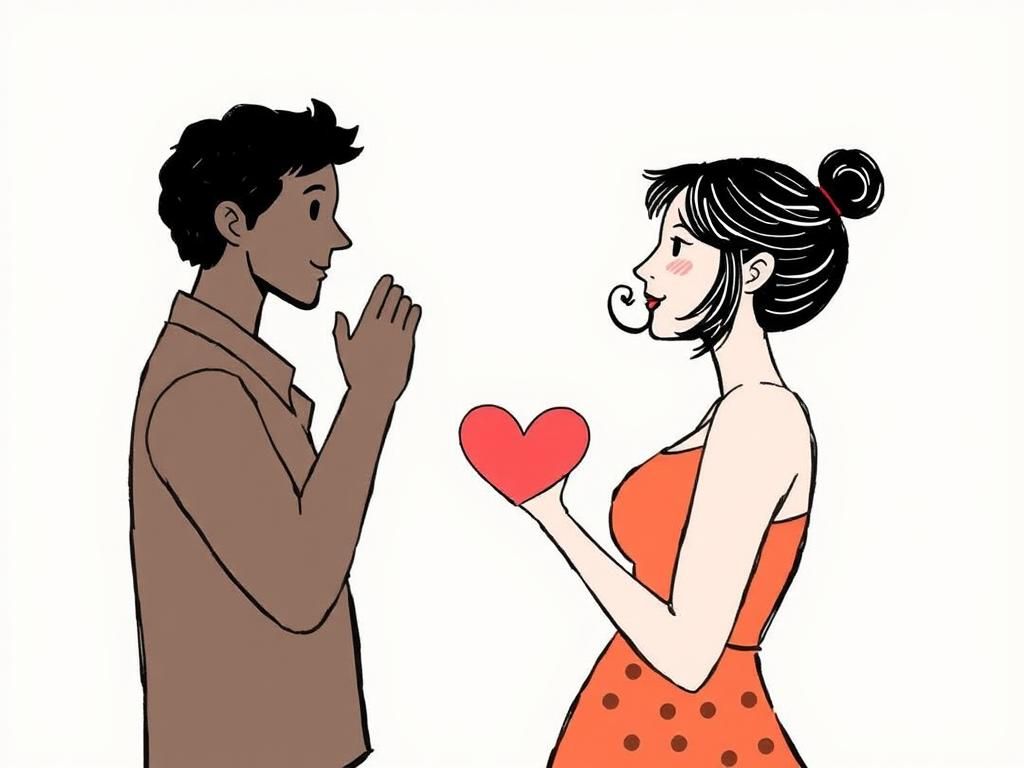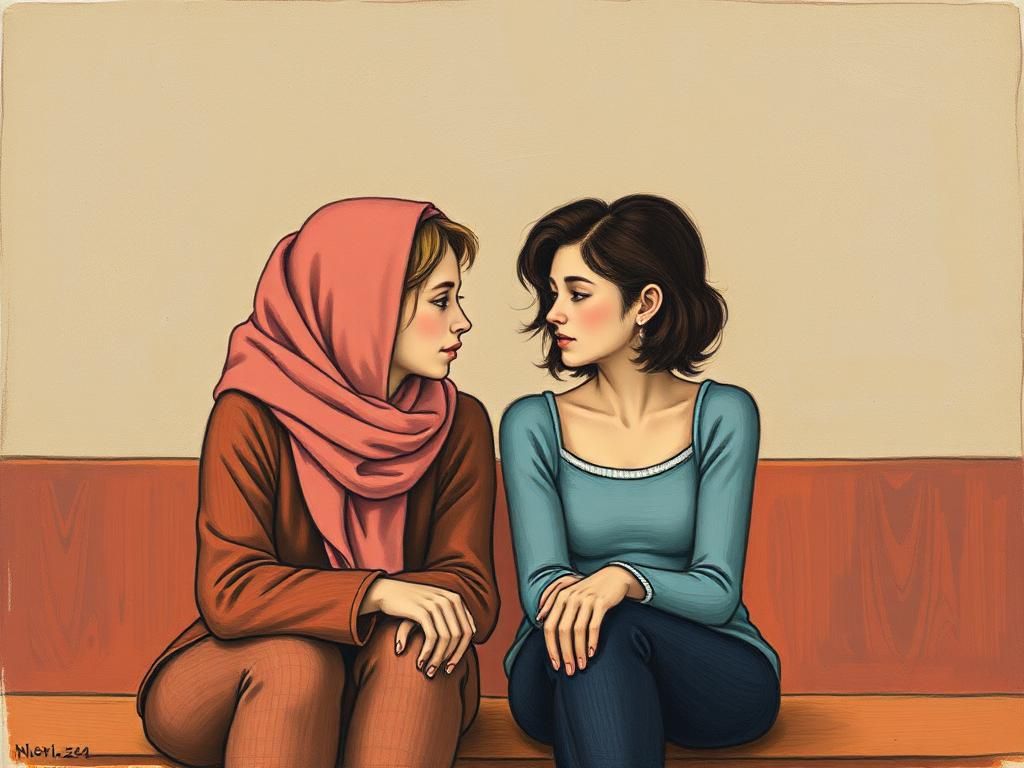Understanding social norms is vital when communicating, particularly on sensitive topics like age. One question that often raises eyebrows is asking a woman her age. This inquiry can have different implications based on cultural contexts and personal relationships. In this article, we will explore the complexities and nuances surrounding the question, providing insights on how to navigate this delicate topic respectfully.
The Social Context of Age
Age as a Social Construct
Age often plays a significant role in shaping identity and self-perception. In many societies, aging is viewed through a lens that values youthfulness. This societal perspective can pressure individuals, particularly women, to conceal their age. This highlights the importance of understanding how age is not just a number but a construct laden with societal values and expectations.
Cultural Differences in Age Perception
Different cultures perceive age in various ways. For instance, in cultures that prioritize family and respect for elders, asking someone’s age may be deemed inappropriate. Conversely, in more egalitarian societies, such inquiries can be considered casual and acceptable. In Japan, for example, discussing age can be a delicate issue, as it relates closely to social hierarchy and respect.
The Sensitivity of Asking a Woman Her Age
Historical Perspectives
Historically, societal attitudes towards women and age have evolved. Women have long been judged by their age, often losing value as they grow older. Media portrayals amplify this issue, consistently favoring youth and contributing to a toxic perception surrounding aging. This history creates a charged atmosphere around the question of asking a woman her age, making sensitivity crucial.
Gender Dynamics in Age Discourse
There’s a distinct difference in age-related perceptions based on gender. For men, aging is often associated with wisdom and stability, while women face stereotypes that equate youth with beauty and desirability. These dynamics complicate asking a woman her age, as it can invoke feelings of vulnerability and self-consciousness.
Situations for Asking Age
Appropriate Contexts
Certain social environments may make it more acceptable to inquire about age. For example, casual gatherings among friends often allow for more open discussions, including questions about age. In professional settings, it may also be appropriate during specific contexts, like team-building activities that involve age as a topic of conversation.
Inappropriate Situations
However, there are environments where asking a woman her age can be perceived as rude or intrusive. First encounters, such as meeting someone through a mutual friend, are typically not the right moments for such questions. Similarly, formal events where protocol is expected—like weddings or corporate functions—often call for more reserved discussions.
Alternatives to Asking Age Directly

Indirect Ways to Gauge Age
If outright questions feel uncomfortable, consider using indirect methods to gauge age. Asking open-ended questions about milestones, such as high school or college graduation, can gracefully lead to age-related insights. Additionally, referring to popular cultural events or trends can create common ground without directly asking for age.
Reading Non-Verbal Cues
Observing body language and the flow of conversation can provide hints about a person’s age. For instance, if a woman references experiences that align with certain generational events, it may offer context about her age. Also, tone and enthusiasm when discussing age-related topics can inform you about how comfortably she engages with her age.
How to Approach the Question Respectfully
Framing the Question
When considering asking a woman her age, it’s essential to frame the question thoughtfully. Softening the inquiry with humor or context can defuse potential awkwardness. For example, you might preface your question by discussing your own age or experiences that led you to ask her age.
Being Open to Reactions
Remember that responses to age inquiries can vary widely. While some women may answer openly, others may prefer to avoid the subject altogether. It’s important to be receptive and respectful—if someone declines to share her age, that choice should be accepted without pressure.
Consequences of Asking a Woman Her Age
Potential Backlash
Asking a woman her age can indeed lead to negative responses, including defensiveness or discomfort. Acknowledging the long-term implications of such inquiries is critical; a seemingly innocuous question can create tension and affect relationships. Understanding this risk is vital for fostering respectful interactions.
Building Trust and Open Dialogue
Creating a space for mutual respect can turn potentially awkward moments into enriching discussions. Engaging in open conversations about age can promote understanding and acceptance of different life stages. So, rather than focusing solely on the question of age, consider sharing experiences that put your inquiries into a broader context.
Conclusion
As we have explored, the dynamics of asking a woman her age are complex and influenced by a multitude of factors. From cultural contexts to individual sensitivities, each situation is unique. Reflecting on these nuances highlights the importance of communication practices that prioritize respect and understanding.

Call to Action
Have your own experiences or perspectives on asking a woman her age? Share them in the comments below! Additionally, consider exploring further resources on age-related dynamics and social interactions to enrich your understanding.
FAQ
1. Is it ever okay to ask a woman her age?
Yes, context matters. Casual settings with familiar friends tend to be more forgiving than formal or first-time encounters.
2. How should I respond if a woman refuses to tell her age?
It’s crucial to respect her choice and switch topics gracefully.
3. Why is asking a woman her age considered sensitive?
Cultural and gender dynamics influence the perception of aging, which can lead to discomfort when discussing age.
4. Can discussing milestones instead of age be helpful?
Absolutely! Discussing life milestones allows for age insights without direct inquiry.
5. What are common stereotypes associated with age and women?
Common stereotypes include the belief that youth equates to beauty and desirability.
6. Are there cultural practices that address age differently?
Yes, cultures like Japan emphasize age and respect, making inquiries about age more sensitive.
7. Is it beneficial to share my own age when asking someone else’s?
Yes, sharing your age can create a more comfortable environment for discussing age-related topics.
8. How does body language indicate age comfort?
Positive body language, like leaning in or relaxed posture, may indicate a person’s comfort in sharing age-related information.
9. What are some phrases to use when asking age respectfully?
Expressions like “If you don’t mind me asking…” or “I’m curious to hear about your experiences…” can soften the inquiry.
10. Can age-related discussions enhance relationships?
Yes, fostering open dialogue about age and experiences can strengthen mutual respect and understanding in relationships.
Table of Key Points
| Aspect | Details |
|---|---|
| Social Constructs | How society views aging and its implications on self-perception |
| Cultural Attitudes | Variability in how different cultures perceive the question of age |
| Appropriate Contexts | Social gatherings, casual settings, and professional scenarios |
| Inappropriate Contexts | First encounters and formal events |
| Indirect Methods | Discussing milestones and generational events |
| Respectful Framing | Using humor and context to soften inquiries |
| Potential Backlash | Negative responses and impacts on relationships |
| Building Trust | Encouraging open dialogue regarding age and experiences |
This comprehensive exploration of asking a woman her age offers valuable insights on navigating a question that can have far-reaching social implications.

